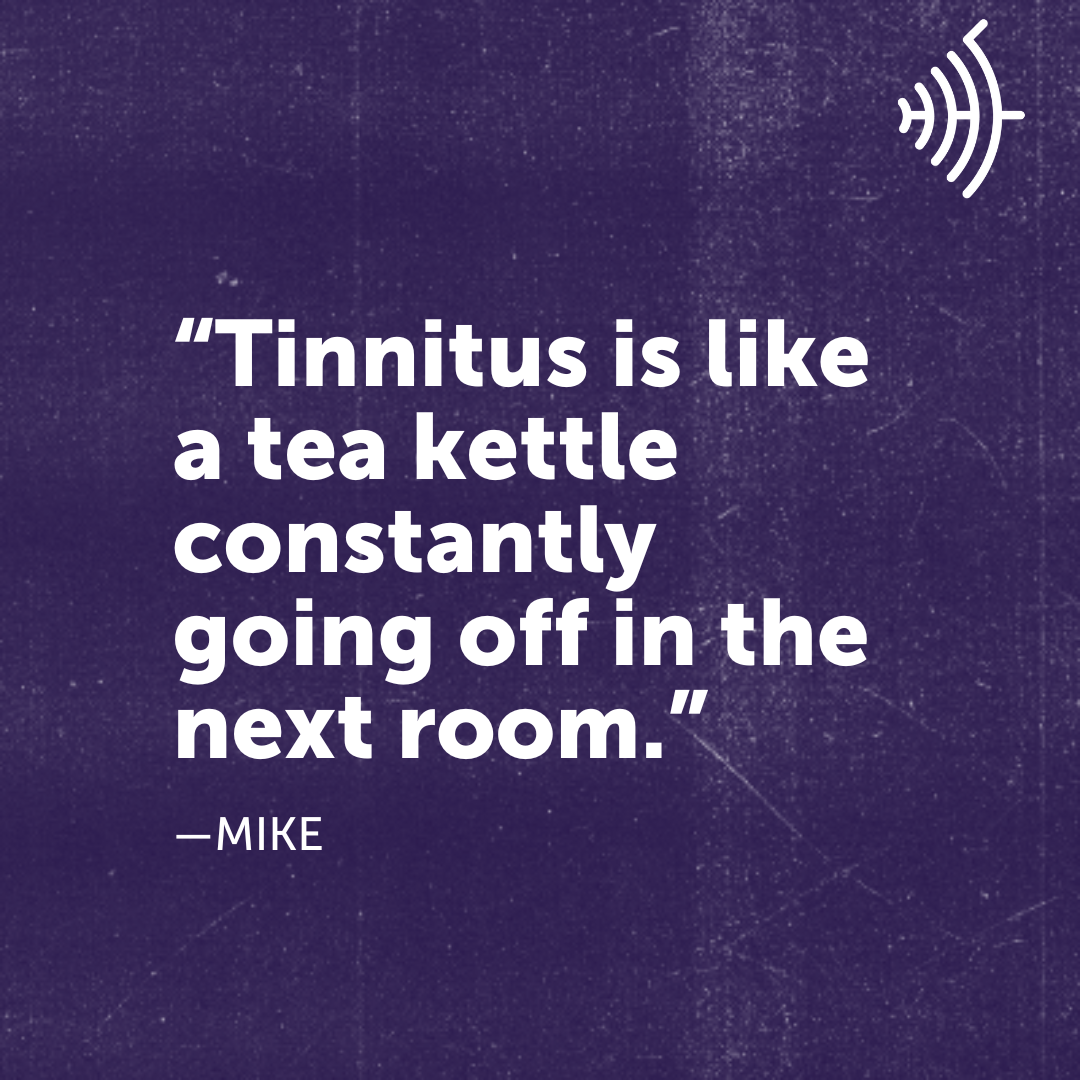Ver pagina en: English | Español
Tinnitus Can Be a Sign of Hearing Damage
Nearly everyone has had tinnitus at one point or another, but it might be most familiar after going to a concert or club without hearing protection. That muffled, ringing sound we hear as we make for the exit is tinnitus. Usually after a few hours, the tinnitus is gone. But the damage to our hearing has been done—and for some people, the tinnitus lingers.
Tinnitus can sound like a buzzing, ringing, high-pitched tone, or pulsing. It can come on gradually, starting mildly at first, and then increase in intensity and frequency over weeks, months, and even years. You can get tinnitus in an instant. One minute you’re living in a quiet world—in the next your world has been invaded by a constant sound.
Studies estimate tinnitus to affect from 1 in 4 to 1 in 10 U.S. adults. Young people ages 12 to 19 also report experiencing tinnitus.
Millions of adults struggle with chronic tinnitus that is bothersome in everyday life, and some have extreme and debilitating cases that can become a source of severe distress leading to insomnia, anxiety, and depression.
What Causes Tinnitus?
The first thing to realize about tinnitus is that it is a symptom, not a disease itself. It is often an early sign of hearing loss as people with hearing loss usually have tinnitus, and vice versa. Scientists believe that hearing phantom sounds occurs because our brain is reacting to sound signals that are missing, due to a loss of hearing. In trying to make up for the missing sound input, the brain creates new sensations that exist only in our head.
Up to 90 percent of people with tinnitus have some level of noise-induced hearing loss. Unfortunately, noise damage is insidious. As is often the case with skin damage from sun exposure, we may not realize our ears have been damaged for years to come. It’s not uncommon for tinnitus to begin years after exposure to loud noises.
Other conditions can cause tinnitus, such as earwax blocking the ear canal, or as a side effect of medications. New research in Nature Communications Medicine from October 2021 shows the virus that causes COVID-19 can infect the inner ear, which may help explain reports of tinnitus and hearing loss among COVID-19 patients.
There are also studies investigating any link between tinnitus and COVID vaccines. In an April 2023 report on NBC News, researchers theorize that tinnitus in these cases may occur as a result of ongoing inflammation, especially in the brain and spinal cord; a preexisting risk factor for tinnitus that gets triggered by the vaccine; and/or the virus’s spike protein itself circulating in the body. (HHF recommends following CDC guidelines for vaccines, and consulting a medical professional with any questions.)
The flip side of tinnitus can sometimes be hyperacusis, or an oversensitivity to everyday sounds or volume levels that can lead to pain. Please see our hyperacusis page for more information.
How Is Tinnitus Treated?
If you have tinnitus that interferes with daily life, please visit a hearing care professional to see if there is a treatable, underlying condition. In general, for those with bothersome tinnitus, some type of therapy combined with sound masking as a safe volume has been shown to provide relief. If earwax is the cause, removing it can relieve symptoms. Hearing aids that both treat the hearing loss as well as contain a sound masking program can also help.
There is no cure for tinnitus, but researchers are hopeful that finding better treatments for hearing loss will mean better treatments for tinnitus.
We have additional resources on Hearing Health Foundation’s main tinnitus page, also available en Español.


